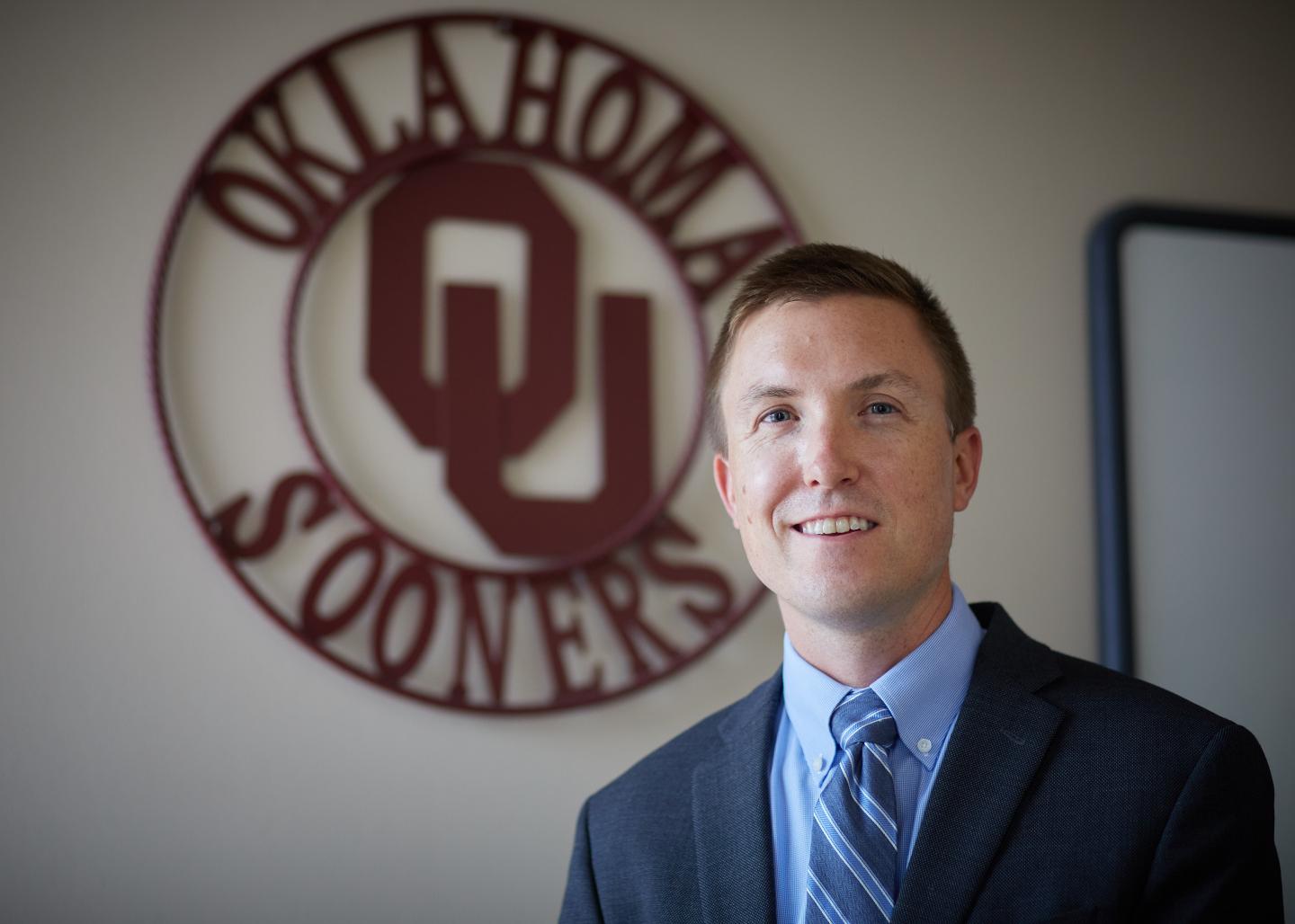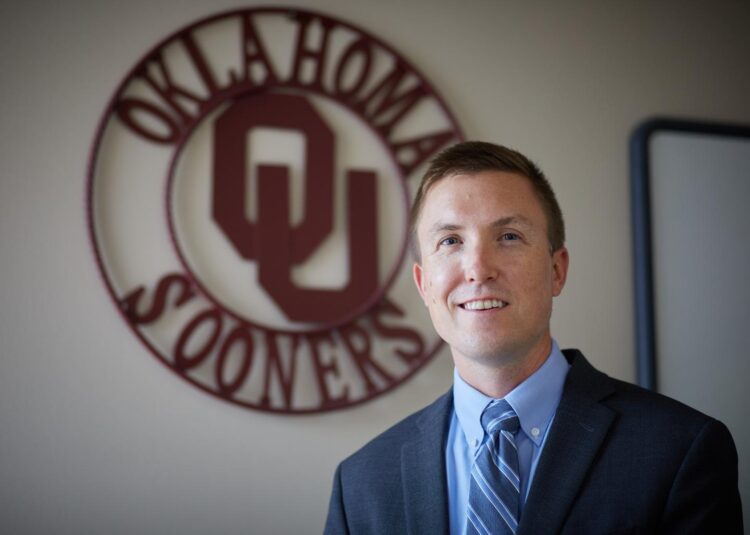Young researcher to explore advancement of polymer recycling technologies in hopes of sending less multi-layer plastics to landfills

Credit: OU Photographer Travis Caperton
NORMAN, OKLA. – Steven Crossley, associate professor at the University of Oklahoma School of Chemical, Biological and Materials Engineering, has been awarded a four-year, $2 million collaborative grant by the Emerging Frontiers in Research and Innovation program of the National Science Foundation to advance polymer recycling technologies in hopes of sending less multi-layer plastics to landfills.
Not all plastics are created equally – from milk jugs and soda bottles, which are readily recyclable, to multi-layered packaging that increases shelf life and requires less material but is less recyclable – the challenge is for researchers to design a process that allows more of the plastics we use in our everyday lives to end up in our recycle bins rather than the local landfill. But not only does this require scientists to design innovative ways to break down these various types of plastic, it also must be economical for the plastic producers and recyclers.
Impurities, such as food and drink in the bottom of a plastic container, is another challenge scientists face in the recycling process. These contaminents are difficult to eliminate, and once melted down, degrade the quality of the recycled material.
“But, what if,” Crossley asks, “we could design catalysts that target and convert those impurities to either make them more compatable with the rest of the plastic – or convert them selectively to carbon dioxide or light gases that could easily be removed, producing a pure stream of higher value.”
Crossley’s research group’s efforts will be complemented by computational simulations led by Bin Wang, associate professor, and experimental efforts in a scaled-up continuous system led by Lance Lobban, professor, both in the School of Chemical, Biological and Materials Engineering at the University of Oklahoma.
In addition to the upgrading of mixed plastic waste streams using catalysts, Adam Feltz, associate professor of psychology at OU, will incorporate public perception surveys to determine
how best to motivate appropriate public participation in plastic waste collection systems.
The project includes an outreach component for underrepresented and middle and high school students to attend a summer camp, led by Lobban.
Crossley, a registered Native American and faculty advisor to OU’s American Indian Science and Engineering Society chapter, will also involve underrepresented undergraduate students in the research during the course of the project.
Christos Maravelias, professor of chemical and biological engineering at Princeton University, and his team will focus on modeling of economic scenarios. These cost estimates will be invaluable as the project evaluates fiscal efficiencies of these potential new processes.
###
View NSF video (https:/
About NSF EFRI Program
According to their website, the Emerging Frontiers in Research and Innovation program of the NSF Directorate for Engineering (ENG) serves a critical role in helping ENG focus on important emerging areas in a timely manner.
EFRI seeks proposals with transformative ideas that represent an opportunity for a significant shift in fundamental engineering knowledge with a strong potential for long-term impact on national needs or a grand challenge.
Media Contact
Karen Kelly
[email protected]





